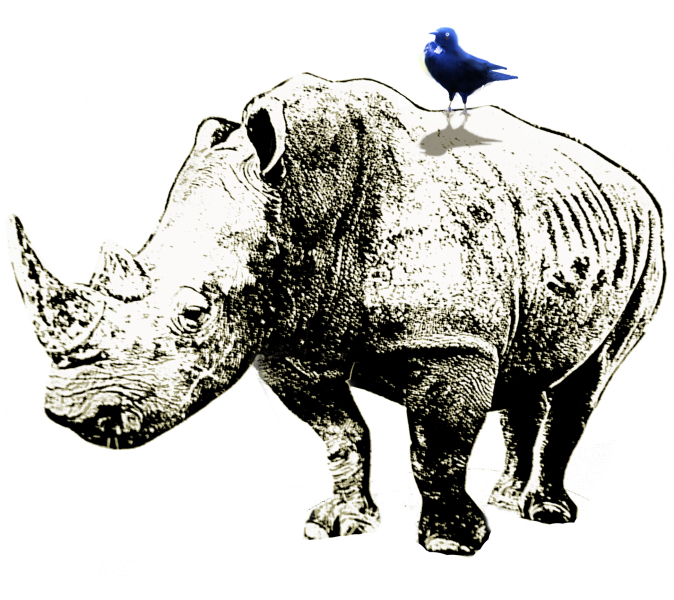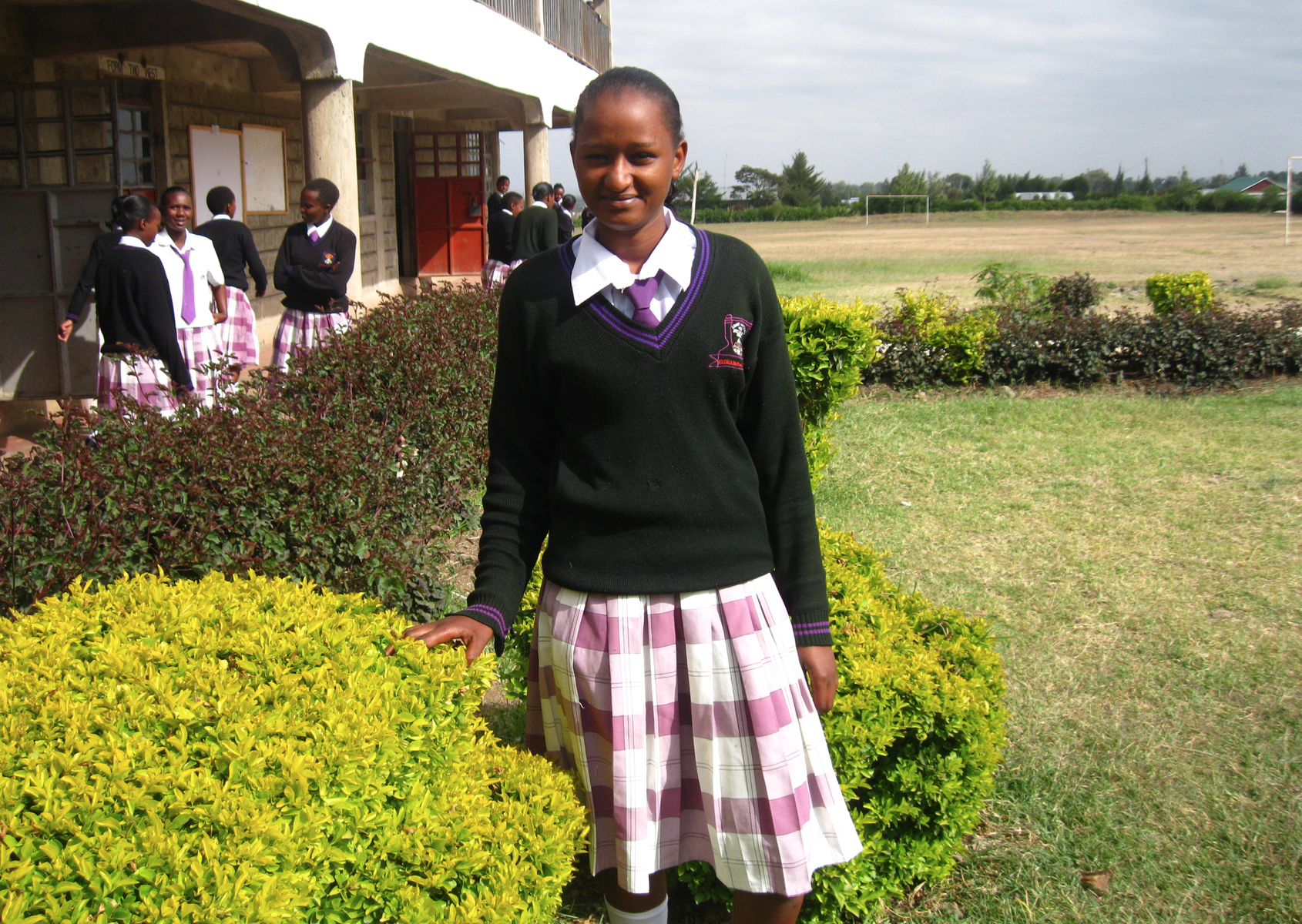[two_third]
August, 2011
Toni Hourston is a nursing student who has spent six summers volunteering at the Nanyuki Children’s Home. One day she asked us to pick her up at the Home because Karen, a little girl who had just arrived, needed to see a doctor.

Little Karen had arrived at the children’s home a week before covered in lice and fleas. She was severely malnourished with a hard distended belly and although she was four years old she looked like a small toddler. Open wounds covered her body and she had scratched her arms and feet bloody from the lice and fleas. Toni and the housemothers at the Children’s Home tried to nurse her back to health but with few supplies, they could do little more than bathe, feed, and comfort her.
The previous day one of the housemothers had bandaged Karen’s arm with cotton which had become stuck to the wound. Toni decided that it was best to have a doctor give her a checkup.
We decided to go to Cottage Hospital, a private hospital that is expensive by Nanyuki standards ($7.00 for a checkup). The majority of the patients are white Kenyans and foreign visitors. Most Kenyans go to the Nanyuki General Hospital where people line up all day to see a doctor and maternity wards are so full, women typically share a room, sometimes two to a bed.

Dr. Butt, a Kenyan born physician originally from India, gave Karen antibiotics and painkillers. Later in the day, Karen asked Toni if she could go to Canada with her, saying “My mother went for firewood – she’s not coming back.” The Kenyan government rarely allows children to leave the country so adoptions can take years.
Over the next few weeks, Karen gained weight and happily played with the other children at the orphanage.
Video: PA-MOJA-MOJA volunteer, Michal Ruhr, plays with Karen in 2011 before she was returned to her mother:
A few days later, Toni called us, sobbing. Karen’s mother had just come to take her home. We were all shocked because we knew she had suffered terribly with her family. Toni told us Karen’s mother had a baby and another seven year old daughter with her. They were poor and filthy, but Karen appeared happy to see them, especially her older sister. As they walked away, Toni was determined to follow up on them to make sure Karen was being taken care of.
We were told that we had to follow community protocol to find her so we started by presenting our case to the mayor of Likii in the local community centre. Chief Lopeyou welcomed us warmly and sent us with two elders to guide us to Karen’s home.
We drove through the dusty alleys of the slum asking anyone we met if they knew where Karen and her family lived. The area was known to be dangerous, famous for bootlegging alcohol. Even the local police avoided this area because they were regularly beaten by gangs protecting their turf. Hundreds of tiny sheet iron homes were crammed together and wide eyed stares followed us wherever we went. We felt relatively safe because it was daytime, there were ten of us in the van, and we had two official community leaders with us.
After hours of wrong turns and dozens of conversations with people who didn’t know the family or weren’t willing to share information, we finally met a woman who said she might know where the family lived. We got out of the van and followed her down a dusty road.
We heard Karen before we saw her.
People often ask us if we cry a lot in Kenya because of all the suffering we see. Ironically, we rarely do because we’re just too busy working and having fun. But turning the corner and seeing little Karen standing all alone in the middle of the road, barefoot, filthy torn dress, hungry and wailing for help – this one did it.
Toni wrapped Karen in a warm blanket and she immediately stopped crying, but the rest of us had trouble holding back our tears.

The neighbours took us to see the home Karen shared with her parents and siblings. A filthy doll with missing arms was lying on the ground in front of their house, a glaring metaphor for the whole scene. The damp shed had no furniture and their only belongings appeared to be a couple of cooking pots and a few filthy blankets lying on the dirt floor.
The neighbors told us that the parents left every morning with their baby and seven year old daughter to look for food and alcohol. They often left Karen alone on the streets for days.

The two elders gave us permission to take her away with us. We got back into the matatu and gave her a drink of juice and a protein bar which she ate hungrily. We now had to go back to the chief’s office to plead with him to allow Karen to go back to the Children’s Home.
Chief Lopeyou and a room of elders listened carefully to the story of Karen’s absent parents and living conditions. The Chief agreed that Karen was severely neglected and should live permanently at the Children’s Home. He happened to be one of the directors of the Home and said he would call the Home’s manager to tell her he had spoken to us. I looked around and saw tears everywhere. We were all relieved and thanked the Chief for all his help.
We knew Karen was hungry so we went to a restaurant for chicken and fries, a favorite for Kenyan children. But when we arrived at the restaurant, she started screaming and refused to eat or drink. We thought she might have stomach pains from the energy bar so one of the volunteers ran to the pharmacist to get pain medicine. But Karen continued to scream and refused to eat or take the medicine. Nothing we offered would console her so we left for the Children’s Home. As soon as she saw the gates of the home, she stopped crying. We realized she had probably never been in a restaurant, never seen chicken or fries, and wanted the comfort of familiar food and surroundings.
Toni took Karen to the toddler ward where she bathed her, changed her clothes, and presented her with a huge bowl of Mukimo, a dense, high carb Kenyan meal made up of ground maize and potatoes. It was clear by the massive spoonfuls of food she plunged into her mouth that she hadn’t eaten in days.
After the bowl was scraped clean, Karen looked at us and finally smiled. She communicated to Toni with a mixture of Swahili and hand gestures that she wanted her to tend her wounds. What she really wanted was the love and attention that accompanied the painful bandage change.


When we took her out to play with the other kids, we were delighted when one child after another came running over, “Hi Kariwon! (her nickname) Karibu, Kariwon!”
Toni often tells us how quickly children assimilate into the home. They arrive frightened and often traumatized, but within a few days they’re eating, laughing and playing with the other children. Karen smiled at all the children who approached her, clearly happy to be back.

We spoke to Lorna, the manager, and asked her if Karen’s mother could take her away again. She assured us this wouldn’t happen. She explained that after we met with the Chief, he would have called the police who would order the arrest of both parents for neglect. If convicted (and it was likely they would), they would serve a two to seven year jail sentence and their other two children would be brought to the Children’s Home. Lorna said this was often the best thing for the families because they came out of jail sober and wanting to put their lives back together. She assured us we had followed protocol and that Karen’s mother no longer had the right to take her child without permission from the Chief.
We hoped that Karen’s siblings would join her at the home, but it was unlikely. The parents would likely hear about our visit from their neighbours and flee the area before they could be arrested. Our actions would make life even more difficult for Karen’s siblings.
Karen is now 10 years old and boarding at the Mount Kenya Baptist school in Nanyuki. She is extremely bright and near the top of her class in all her subjects.
Karen and Toni in 2012:

[/two_third]
[one_third_last] August 2018 Update, [/one_third_last]


I don’t recognize this child. The Karen I saw this summer was healthy, outgoing and sociable.